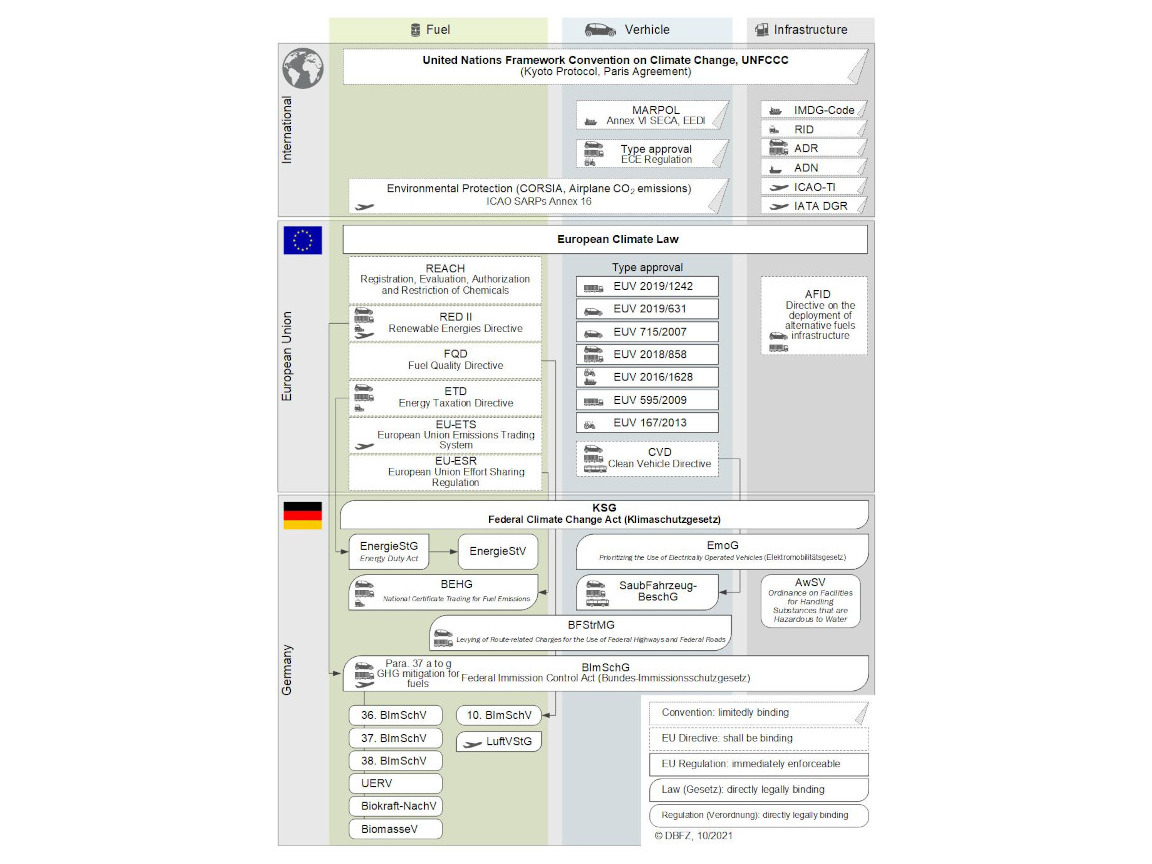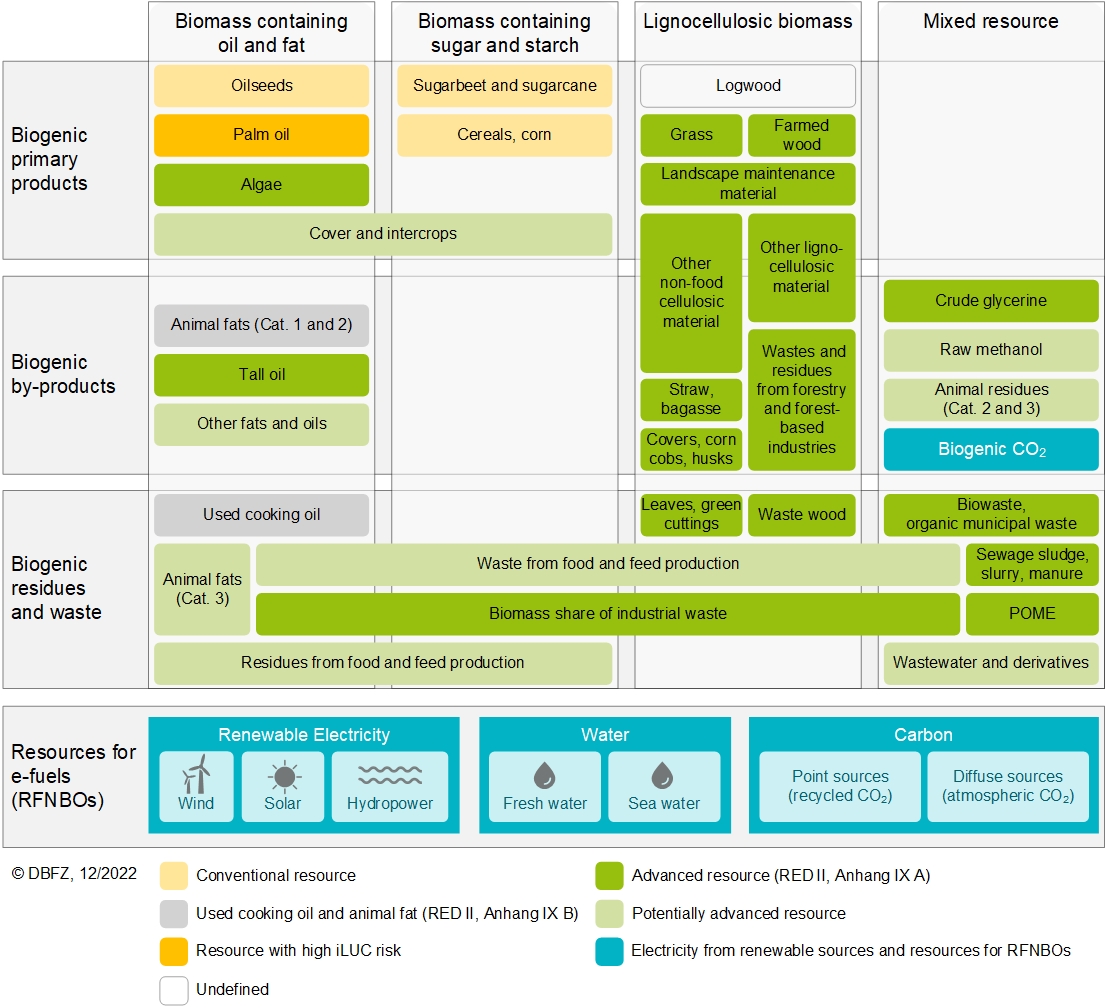An overview of the relevant legal framework conditions in the context of internationally, European and nationally recognized certification systems, including their sustainability requirements, will form the basis for the work and networking activities in the innovation focus area of sustainability - resources and energy. In addition, the inclusion of advanced biofuels and renewable fuels of non-biological origin (RFNBO) in the fuel markets, the use of resources from a sustainability perspective and the feasibility of implementing sustainability requirements will be discussed. Networking activities will also focus on existing and applicable sustainability requirements, possible gaps and the need for further action. The innovation focus on sustainability will be led by experts from the German Biomass Research Center (DBFZ), the consulting firm Meo Carbon Solutionsand the International PtX Hub.
How the innovation focus works
The basis for the work and networking activities in the innovation focus area of sustainability is an overview of the relevant legal framework conditions in the context of internationally, European and nationally recognized certification systems, including their sustainability requirements. In addition, the inclusion of advanced biofuels and renewable fuels of non-biological origin (RFNBO) in the fuel markets, the use of resources from a sustainability perspective and the feasibility of sustainability requirements are discussed.This also includes the security of certification systems against possible misuse, as well as the further development of these requirements in the context of the EU Green Deal.
The eligibility of fuels from combined electricity and biomass-based technologies and the design of the level of consideration - for example tank-to-wheel versus well-to-wake - are further decisive factors. There is also the question of whether negative emissions (e.g. from BECCS) and the balancing of biogenic and fossil carbon can be taken into account.
The innovation focus on sustainability isledby experts from the German Biomass Research Center (DBFZ), the consulting firm Meo Carbon Solutionsand the International PtX Hub.
"Sustainability aspects in the field of renewable fuels can only be addressed by taking a holistic view and involving the various players. Gaps can be identified and solutions developed in particular through this necessary networking."
Dr. Ing. Franziska Müller-Langer
Sustainability aspects in regulations
The current status of regulations and their national implementation in Germany with regard to greenhouse gas accounting is of great importance. There are various certification systems that are already established and support companies in fulfilling their obligations.
In addition, there are recognized and publicly accessible tools that enable simplified greenhouse gas accounting. The use of such tools is recommended in order to make the balancing process more efficient and at the same time meet the requirements of the regulations.
Resources for sustainable fuels
The categorization of resources under the Renewable Energy Directive (RED for short) has significant consequences and should be target-oriented and practicable in terms of sustainability. Taking this into account results in different quantities of renewable fuels from different carbon sources depending on the boundary conditions.
It must also be considered under which boundary conditions sufficient quantities of resources will be available in the long term if, at the same time, increasing demand in other sectors is also relevant. Furthermore, the question arises as to what effects the cascade principle, e.g. for wood, has on advanced biofuels.
%20KIT_Markus%20Breig%20und%20Amadeus%20Bramsie-3.jpg)


